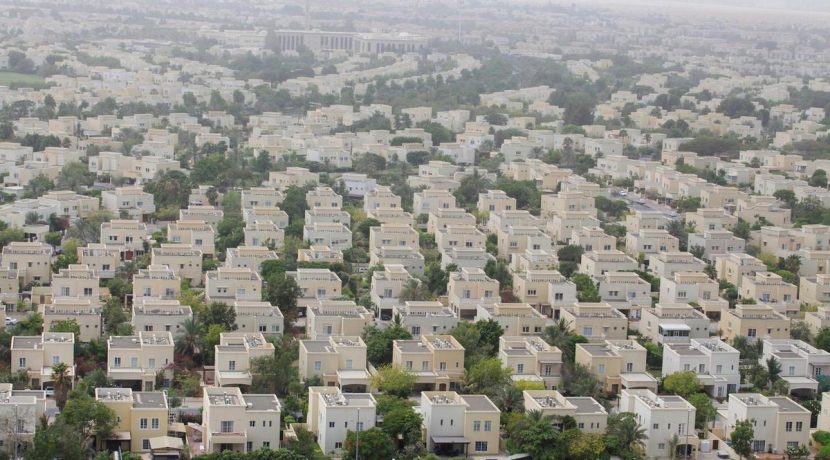I have seen many articles on why buying property is a great deal for UAE residents, particularly those that plan to live here for the long-term. The idea is that rent is dead money and you might as well invest it back into yourself rather than give it away to someone else. My issue is that to buy the home I live in – a three-bedroom villa – I would be looking at a purchase price of Dh3 million. And with the current mortgage regulations in place, my deposit would have to be 25 per cent of the asking price which is Dh750,000. Plus I assume there would be fees to pay on top of that. That’s quite an amount of cash to simply find and invest into a property. I plan to stay in the UAE for another 10 years to see my children through their education and have heard whisperings that the mortgage caps may be relaxed soon. Do you think this might happen? And if so, what do you think the deposit amount would be reduced to for non-Emirati residents. KS, Dubai
The Central Bank of the UAE tightened credit controls in October 2013 when it introduced a mortgage cap due to the threat of a possible property bubble forming as house prices were rising too rapidly. This move meant that banks would fund the 75 per cent loan to value with the remaining 25 per cent put down by the buyer. This measure, along with the doubling of the transfer fees was the start of softening property prices, which have lasted to this day.
Given that the Dubai property market is now fast approaching its fifth year of depressed asking prices, there have been calls for the Central Bank to relax the credit terms to help the many residents who wish to buy a property but are finding it difficult to raise the necessary 25 per cent deposit while still paying rent, school fees, car and living expenses and so on.
Under the current rules for mortgages, an expatriate can take out a first mortgage up to the value of Dh5 million with a 75 per cent loan to value (LTV) rate, while Emiratis are allowed to claim 80 per cent LTV. For any property purchase above Dh5 million, the maximum LTV for expats is 65 per cent and for Emiratis this is 70 per cent. For any off plan property the maximum amount loaned would be 50 per cent prior to completion.
There is a rumour that the central bank may relax these terms and if they did, I believe there would be a rush on secondary market properties because there are many would-be owner-occupier buyers waiting for such a move. These buyers continue to be renters due to the problem of raising the 25 per cent deposit.
Do I think this credit amount will be relaxed by the central bank? I certainly hope so because I know the Government has already acted upon other measures to help residents. Measures already announced include the 10-year residence visa for qualified professionals, the capping of school fees in Dubai this year and changes to company ownerships. So if the central bank was to raise the loan to value from say 75 per cent to either 80 or 85 per cent this would be a good move for the secondary property market.
While you wait for this to possibly happen, you should know that there are developers who are facilitating sales with ready stock. In Al Furjan, for example there are completed townhouses starting from Dh3 million that are available to buy now by putting down only 5 per cent and moving in. The remaining 95 per cent is payable over five years interest-free. The buyer can get finance once he has paid the required 25 per cent to the developer, however this would defeat the obvious reason why a buyer goes for the interest-free payment plan in the first place.
In addition you will make further savings of approximately Dh180,000 as the developer will also waive the 4 per cent Dubai Land Department charge and pay the agent’s commission.
All rights reserved to the initial publisher for The National
Collected and published by Arms &McGregor International Realty® editorial team. Get in touch with us at [email protected]

